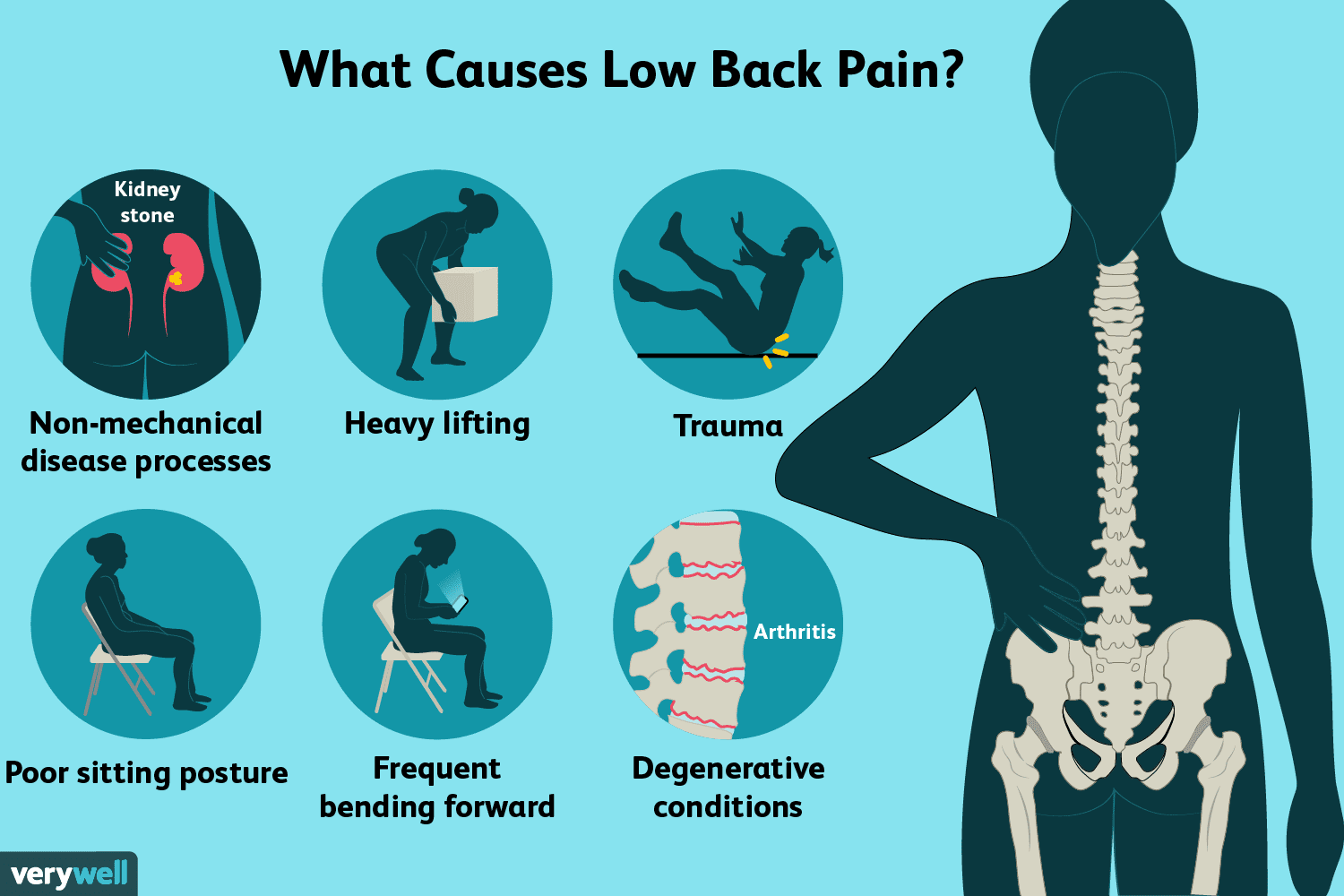In the world of health and nutrition, understanding macronutrients—carbohydrates, protein, and fat—plays a crucial role in achieving optimal well-being. Each of these macronutrients serves a unique purpose in the body, influencing energy levels, body weight, and overall health. Recognizing the differences among carbs, fat, and protein is essential for making informed dietary choices that support individual health goals.
Carbohydrates are the body’s primary source of energy, while protein is vital for muscle repair and growth. Fats, often misunderstood, are necessary for hormone production and nutrient absorption. Understanding how these macronutrients interact with one another helps individuals tailor their diets to meet their specific energy needs and health objectives.
Navigating the complexities of nutrition can be challenging, but the differentiation between these macronutrients can simplify dietary decisions. By learning how each macronutrient affects the body, individuals can better manage their weight and enhance their overall health.
Understanding Macronutrients
Macronutrients are essential components of diet that provide energy and nutrients necessary for growth and maintenance. Carbohydrates, protein, and fat each play vital roles in the body’s functioning.
Role of Carbohydrates
Carbohydrates are the body’s primary source of energy. They break down into glucose, which fuels cells, tissues, and organs. This macronutrient is crucial for brain function and physical activity.
Carbohydrates can be classified into simple and complex forms. Simple carbohydrates, like sugars, provide quick energy, while complex carbohydrates, such as whole grains and legumes, offer sustained energy and fiber.
Fiber, a type of carbohydrate, promotes digestive health and regulates blood sugar levels. Adequate carbohydrate intake supports overall health, aids in recovery from exercise, and helps preserve muscle mass during calorie restriction.
Importance of Protein
Protein is essential for growth, repair, and maintenance of body tissues. It consists of amino acids, which are the building blocks necessary for muscle, skin, and hormone production.
There are twenty different amino acids, nine of which are essential and must be obtained through diet. High-quality protein sources include meat, dairy, legumes, and nuts.
Adequate protein intake is crucial for muscle repair, especially after exercise. It also plays a role in enzyme production and immune function. Without sufficient protein, the body can experience muscle wasting and a weakened immune response.
Functions of Fat
Fat is a concentrated source of energy, providing more than double the energy per gram compared to carbohydrates and protein. It plays a significant role in nutrient absorption and hormone production.
Fats are categorized into saturated, unsaturated, and trans fats. Unsaturated fats, found in avocados, nuts, and olive oil, are beneficial for heart health. Saturated fats, typically found in animal products, should be consumed in moderation.
Fatty acids, essential for cell membrane integrity and brain function, are crucial for the body’s overall health. The correct balance of fat in diets supports energy levels, nutrient absorption, and contributes to a feeling of fullness.
Types and Sources of Macronutrients

Understanding the various types and sources of macronutrients is essential for making informed dietary choices. Each macronutrient category includes distinct types that play different roles in the body.
Different Types of Carbohydrates
Carbohydrates are classified into two main types: simple and complex. Simple carbohydrates consist of one or two sugar units. Common sources include fruits, dairy products, and table sugar. These carbohydrates provide quick energy but may lead to spikes in blood sugar levels.
Complex carbohydrates, on the other hand, contain multiple sugar units. They are found in whole grains, legumes, and vegetables. These provide sustained energy and essential nutrients. Fiber, a crucial component of complex carbs, aids digestion and supports overall health. This differentiation is vital for individuals aiming to balance energy levels and manage their weight.
Protein Quality and Sources
Proteins are categorized as complete or incomplete based on their amino acid composition. Complete proteins contain all essential amino acids. They are typically found in animal sources such as dairy, meat, fish, and eggs. These proteins are beneficial for muscle repair and overall bodily functions.
Incomplete proteins lack one or more essential amino acids. Common sources include nuts, seeds, beans, and whole grains. Vegetarians and vegans can combine different incomplete protein sources to achieve a complete amino acid profile. This understanding helps individuals optimize their protein intake according to dietary preferences and nutritional needs.
Saturation Levels in Fats
Fats are divided into three main types based on saturation: saturated, unsaturated, and trans fats. Saturated fats are typically solid at room temperature and are found in foods like butter, fatty cuts of meat, and full-fat dairy products. Excessive consumption may raise cholesterol levels.
Unsaturated fats, including monounsaturated and polyunsaturated fats, are typically liquid and include sources such as olive oil, nuts, and fish oil. These fats are beneficial for heart health. Trans fats are artificially created through hydrogenation and are found in some processed foods. They should be limited due to their links to negative health effects. Understanding these types helps individuals make healthier fat choices.
Impact of Macronutrients on Health
Macronutrients play crucial roles in overall health. Each has specific functions that affect metabolism, energy levels, and the body’s ability to maintain tissues and regulate vital processes. Understanding their individual impacts is essential for effective dietary choices.
Carbohydrates and Blood Glucose
Carbohydrates are the body’s primary source of energy. When consumed, they break down into glucose, which raises blood glucose levels. This process prompts the pancreas to release insulin, a hormone that helps cells absorb glucose.
A consistent intake of carbohydrates can support energy needs, but excessive amounts may lead to obesity and insulin resistance. Insulin resistance can result in type 2 diabetes. Choosing complex carbohydrates, such as whole grains, can moderate blood glucose spikes compared to simple sugars.
Fiber, a type of carbohydrate, also aids in blood sugar control by slowing digestion and promoting a gradual release of glucose. This can enhance satiety and reduce hunger, contributing to weight management and overall health.
Proteins and Tissue Maintenance
Proteins are vital for the building and repair of tissues in the body. They are composed of amino acids, some of which are essential and must be obtained through diet. Adequate protein intake supports muscle growth, repair, and immune function.
In times of stress or illness, the body’s need for protein increases. Insufficient protein can lead to muscle wasting, weakened immune response, and prolonged recovery from injury or illness. Maintaining balanced protein intake is important for hormonal production and overall bodily functions.
Sources of protein include meat, dairy, legumes, and nuts. A varied diet can ensure that all essential amino acids are consumed, supporting overall health and proper tissue function.
Fats and Cholesterol Management
Fats are necessary for energy, hormone production, and nutrient absorption. They play a significant role in managing cholesterol levels, particularly in the form of fatty acids. Saturated and trans fats can raise LDL (bad) cholesterol, while unsaturated fats can increase HDL (good) cholesterol.
Balancing fat consumption is important for heart health. High cholesterol levels are linked to increased risk of cardiovascular diseases. Including sources of healthy fats, such as avocados, nuts, and olive oil, can contribute to better cholesterol profiles.
Omega-3 fatty acids, found in fish and flaxseeds, are particularly beneficial for reducing inflammation and promoting heart health. Monitoring fat intake while focusing on the quality of fats consumed contributes to a healthier lifestyle.
Metabolism of Macronutrients
Macronutrient metabolism involves distinct processes for carbohydrates, proteins, and fats. Each plays a crucial role in energy production, storage, and utilization within the body.
Digestion Process of Carbohydrates
Carbohydrates begin digestion in the mouth, where enzymes like salivary amylase break them down into simpler sugars. As the food moves to the stomach and small intestine, pancreatic amylase continues the breakdown.
Eventually, maltase, lactase, and sucrase convert disaccharides into monosaccharides such as glucose, fructose, and galactose. These sugars enter the bloodstream and lead to energy production.
Excess glucose is stored as glycogen in the liver and muscles. Glycogen can be quickly converted back to glucose when needed, ensuring a steady energy supply for various activities.
Protein Breakdown and Utilization
Protein digestion starts in the stomach with the action of pepsin, which breaks down proteins into smaller polypeptides. In the small intestine, enzymes like trypsin and chymotrypsin further digest these peptides into amino acids.
Amino acids are absorbed through the intestinal lining and transported to cells. They serve multiple roles, including tissue repair, hormone production, and enzyme synthesis.
Protein intake is vital for muscle maintenance, especially following exercise, as it supports recovery and growth. Excess amino acids can be converted into glucose or stored as fat if not immediately needed.
Fat Metabolism and Energy Storage
Fat digestion begins in the stomach but primarily occurs in the small intestine with the help of bile salts, which emulsify fats, allowing enzymes like lipase to break them down into free fatty acids and glycerol.
These components are absorbed into the bloodstream and transported to cells for energy production or storage. Fats provide more than double the calories per gram compared to carbohydrates or proteins, making them efficient energy sources.
Excess fatty acids can be converted into triglycerides and stored in adipose tissue for later use. This energy storage is essential for maintaining bodily functions during fasting or prolonged exercise, illustrating the importance of a balanced fat diet.
Nutritional Balance and Diet

Maintaining a balanced diet involves understanding the roles of macronutrients: carbohydrates, fats, and proteins. Each of these plays a crucial part in weight management and overall health.
The Role of Macronutrients in Weight Control
Macronutrients are essential for energy and health. Carbohydrates serve as the primary energy source, while fats provide concentrated energy and support hormone production. Proteins are vital for muscle repair and growth, influencing metabolism.
In managing weight, it’s important to choose the right types of macronutrients. For instance, high-protein diets can enhance satiety, reducing calorie intake for weight loss. Conversely, unhealthy fats can lead to weight gain and insulin resistance. Understanding the balance between omega-3 and omega-6 fatty acids also contributes to metabolic health.
Balancing Macronutrients for Optimal Nutrition
Achieving a balanced diet requires careful consideration of macronutrient ratios. A common recommendation is to consume approximately 45-65% of calories from carbohydrates, 20-35% from fats, and 10-35% from proteins.
Individuals on a weight-loss program should focus on high-fiber foods, which promote fullness and aid digestion. Low-fat diets might appeal to some, but incorporating healthy fats is crucial for sustained energy and nutrient absorption. This includes avocados and nuts, which provide essential fatty acids.
Customization of macronutrient intake based on personal goals—such as weight loss or gain—can optimize health outcomes. Tracking nutrient intake along with regular physical activity supports effective weight management strategies.
Macronutrient Impact on Dietary Conditions
Macronutrients play a crucial role in managing several dietary conditions. Their specific impacts on health can influence strategies for addressing issues like diabetes, cardiovascular health, and muscle maintenance.
Macronutrients and Diabetes Management
In diabetes management, carbohydrates significantly affect glucose levels. Individuals must monitor carbohydrate intake to regulate insulin responses. Refined carbs can cause spikes in blood sugar, while complex carbohydrates, including whole grains and legumes, release glucose more slowly.
Balancing protein and fat in meals can also help control insulin levels. High-protein foods, such as lean meats and legumes, support satiety, potentially aiding weight loss. Additionally, fats, especially unsaturated ones like olive oil, can enhance insulin sensitivity.
Recommended Choices:
- Complex Carbohydrates: Quinoa, brown rice, and vegetables
- Protein Sources: Fish, chicken, and beans
- Healthy Fats: Avocados and nuts
Dietary Fats and Cardiovascular Health
Dietary fats are essential for overall health but vary in their effects on cardiovascular wellness. Saturated fats, commonly found in red meat and full-fat dairy, can elevate cholesterol levels, increasing the risk of heart disease.
Conversely, unsaturated fats, particularly omega-3 and omega-6 fatty acids from sources like fatty fish, walnuts, and seeds, contribute to better heart health. These fats can lower triglycerides and improve lipid profiles.
Important Points on Lipids:
- Saturated Fats: Limit intake for heart health
- Unsaturated Fats: Incorporate for cardiovascular benefits
Protein Needs for Muscle Growth and Repair
Protein is vital for muscle growth and repair, especially for those engaged in physical activity. It helps in recovery by repairing muscle tissues damaged during exercise.
The recommended daily intake for protein typically ranges from 0.8 to 2.0 grams of protein per kilogram of body weight, depending on activity levels.
Incorporating high-quality protein sources, such as lean meats, fish, and plant-based options, supports muscle synthesis and overall health. Adequate protein intake is also crucial for weight management, as it promotes satiety.
Protein Sources to Consider:
- Animal-Based: Chicken, turkey, and fish
- Plant-Based: Lentils, chickpeas, and tofu
The Role of Macronutrients in Physical Activity
Macronutrients significantly influence energy levels, performance, and recovery during physical activity. Understanding their distinct roles can help individuals optimize their nutrition for exercise outcomes.
Carbohydrates as Fuel for Exercise
Carbohydrates serve as the primary energy source for high-intensity workouts. When consumed, they are broken down into glucose, which is then stored as glycogen in muscles and the liver. During exercise, the body taps into these glycogen stores to fuel performance.
Athletes typically require a higher carbohydrate intake to replenish these stores, especially after strenuous activity. This approach aids in maintaining endurance and stamina. Consuming complex carbohydrates, such as whole grains and fruits, provides a sustained energy release, supporting prolonged physical activity.
Protein’s Relevance in Recovery and Performance
Protein plays a critical role in muscle repair and growth following exercise. After physical activity, muscle fibers experience microtears, requiring protein for recovery. The body utilizes amino acids to rebuild and strengthen these fibers.
Timely protein intake after workouts enhances recovery. Research suggests aiming for 10-20 grams of protein within 30 minutes post-exercise supports optimal healing. Additionally, maintaining adequate protein levels throughout the day aids in muscle protein synthesis, contributing to overall performance improvement.
Fats in Long-Duration Endurance Activities
Fats serve as a vital energy source for long-duration endurance activities. While carbohydrates are preferred for short bursts of high-intensity efforts, fats become increasingly important during prolonged exercises, such as marathon running or cycling.
When glycogen stores deplete, the body shifts to burning fat for fuel. This adaptation allows for sustained energy levels over longer periods. Endurance athletes often benefit from integrating healthy fats into their diets, such as avocados and nuts, to optimize energy availability during extended training sessions.
Addressing Common Myths About Macronutrients
Many misconceptions exist regarding macronutrients, particularly carbohydrates, protein, and fats. Understanding these myths is crucial for making informed dietary choices.
Misconceptions About Carbs and Weight Gain
A prevalent myth is that carbs directly cause weight gain. In reality, weight management hinges on overall calorie balance rather than simply eliminating carbohydrates.
Types of Carbohydrates:
- Simple Carbs: Found in sugars and processed foods.
- Complex Carbs: Found in whole grains, legumes, and vegetables.
Complex carbs provide essential nutrients and fiber, which can aid in weight loss by promoting satiety. Eliminating carbs from the diet entirely can lead to nutrient deficiencies and negative impacts on energy levels.
The Truth Behind Protein and Kidney Health
Another myth suggests that high protein intake can damage kidney function, especially for those with existing kidney issues. However, research indicates that for healthy individuals, increased protein does not harm kidney health.
Protein Sources:
- Animal Proteins: Meat, dairy, eggs.
- Plant Proteins: Legumes, nuts, seeds.
While individuals with chronic kidney disease should manage protein intake, a balanced diet rich in protein is beneficial for muscle maintenance and overall health.
Fats and the Fear of Heart Disease
There’s a common belief that all fats contribute to heart disease. In reality, not all fats are created equal.
Types of Fats:
- Saturated Fat: Found in red meat and full-fat dairy; moderation is key.
- Unsaturated Fat: Includes monounsaturated and polyunsaturated fats, found in nuts, seeds, and fish; these can promote heart health.
- Trans Fat: Artificially created fats; these should be avoided due to their adverse effects on cholesterol levels.
A balanced intake of healthy fats is essential for optimal body function. The key lies in choosing the right types of fats rather than fearing all fat sources.
Food Processing and Macronutrient Content
Food processing significantly influences the quality and composition of macronutrients in various foods. Understanding these effects can guide better dietary choices.
Impact of Processing on Carbohydrate Quality
Processed foods often contain refined carbohydrates that are stripped of their natural fiber and nutrients. This includes white bread and sugary snacks, which typically have high added sugars that lead to rapid spikes in blood sugar levels. In contrast, whole grains retain their fiber and beneficial nutrients, promoting better digestion and sustained energy levels.
Refined grains are common in many packaged foods, negatively impacting satiety and overall nutrition. The absence of fiber in these products can contribute to overeating and health issues such as obesity and diabetes.
It is crucial to choose whole grains over refined options for healthier carbohydrate intake, as whole grains provide essential vitamins and minerals while helping to maintain digestive health.
Effect of Food Processing on Proteins
Food processing can alter the quality of protein sources, affecting their bioavailability and nutrient profile. High-temperature processing, such as grilling or frying, can lead to the formation of harmful compounds while potentially reducing the protein structure’s integrity.
Additionally, many processed foods that are rich in protein, like sausages and deli meats, often contain fillers and additives that may lower their overall nutritional value.
Choosing minimally processed protein options, such as lean meats, eggs, or legumes, can ensure higher protein quality and better nutrient absorption. This selection supports muscle health, hormone production, and overall wellness.
How Processing Affects Fat Composition
Food processing also significantly impacts fat composition. Highly processed foods may contain unhealthy trans fats and a high ratio of omega-6 to omega-3 fats. These unhealthy fats are often found in fried foods, baked goods, and many packaged snacks, which can increase inflammation and risk of chronic diseases.
In contrast, healthy fats, such as monounsaturated and polyunsaturated fats, are found in whole foods like avocados, nuts, and fatty fish. These fats are essential for heart health and overall wellness.
Understanding the types of fats and their sources is essential for making healthier dietary choices that promote long-term health benefit.
Dietary Trends and Macronutrient Intake
Recent dietary trends have shifted individual focus toward specific macronutrient ratios, influencing health and weight management decisions. Understanding how these approaches affect carbohydrates, fats, and proteins can help individuals choose diets that suit their needs.
Low-Carb Diets and Their Popularity
Low-carb diets have gained traction due to their potential for weight loss and improved metabolic health. These diets typically limit carbohydrate intake while emphasizing protein and healthy fats. Common examples include the Atkins and Paleo diets.
Individuals often choose low-carb regimens to reduce blood sugar levels and improve insulin sensitivity. This approach may also promote a state of ketosis, where the body burns fat for energy. Key benefits include possible reductions in hunger and cravings, making it easier for some to maintain their dietary goals.
Plant-Based Diets and Protein Considerations
Plant-based diets, including vegetarianism and veganism, have become increasingly popular. These diets focus on fruits, vegetables, whole grains, and legumes. However, protein sources may require careful selection to meet daily needs.
In vegetarian diets, protein can come from dairy and eggs, while vegans must rely on plant sources such as beans, lentils, and certain grains. It is important for individuals to consider their protein intake and explore a variety of foods. Nutritional completeness can be achieved through combinations, such as rice and beans, which provide all essential amino acids.
The Keto Trend and Fats
The ketogenic diet emphasizes high fat intake while drastically reducing carbohydrates. This diet aims to shift the body into ketosis, allowing fats to be utilized as the primary energy source. Fats consumed are often unsaturated, although some may include saturated fats.
Adherents of the keto diet prioritize foods like avocados, olive oil, and nuts. Awareness of trans fats is crucial, as these can adversely affect heart health. While many find success with weight management on this diet, it is important to consider sustainability and potential nutritional deficiencies.
Source link










